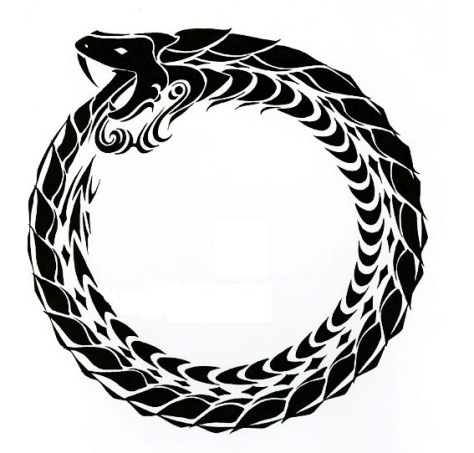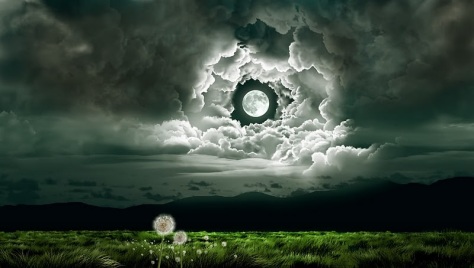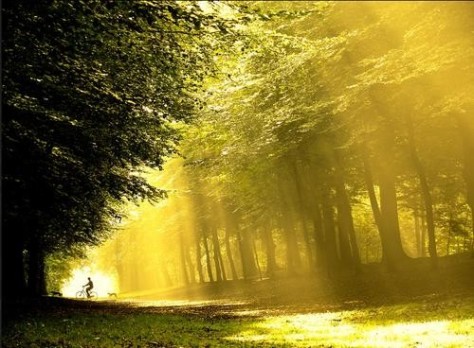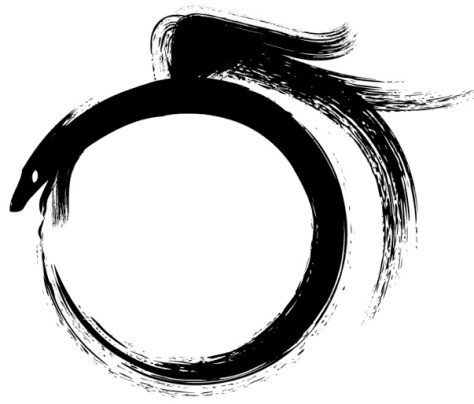Tag Archives: Art
Ode to the Present
This present moment, smooth as a wooden slab, this immaculate hour, this day pure as a new cup… we caress the present; we cut it according to our magnitude, we guide the unfolding of its blossoms. It is living, alive — it contains nothing from the unrepairable past, from the lost past, it is our infant, growing at this very moment, adorned with sand, eating from our hands. Grab it. Don’t let it slip away. Don’t lose it in dreams or words. Clutch it. Tie it, and order it to obey you. Make it a road, a bell, a machine, a kiss, a book, a caress. Take a saw to its delicious wooden perfume. And make a chair; braid its back; test it. Or then, build a staircase!
Yes, a staircase. Climb into the present, step by step, press your feet onto the resinous wood of this moment, going up, going up, not very high, just so you repair the leaky roof. Don’t go all the way to heaven. Reach for apples, not the clouds. Let them fluff through the sky, skimming passage, into the past. You are your present, your own apple. Pick it from your tree. Raise it in your hand. It’s gleaming, rich with stars. Claim it. Take a luxurious bite out of the present, and whistle along the road of your destiny.
~ Pablo Neruda
noone and a star stand
noone and a star stand,am to am
(life to life;breathing to breathing
flaming dream to dreaming flame)
united by perfect nothing:
millionary wherewhens distant,as
reckoned by the unimmortal mind,
these immeasurable mysteries
(human one;and one celestial)stand
soul to soul:freedom to freedom
till her utmost secrecies and his
(dreaming flame by flaming dream)
merge—at not imaginable which
instant born,a(who is neither each
both and)Self adventures deathlessness
~ e.e. cummings
Essential Unity
Fear of the Inexplicable
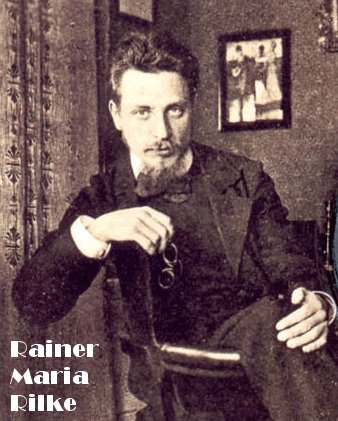
We must assume our existence as broadly as we in any way can; everything, even the unheard-of, must be possible in it. That is at bottom the only courage that is demanded of us: to have courage for the most strange, the most singular and the most inexplicable that we may encounter. That mankind has in this sense been cowardly has done life endless harm; the experiences that are called “visions,” the whole so-called “spirit-world,” death, all those things that are so closely akin to us, have by daily parrying been so crowded out of life that the senses with which we could have grasped them are atrophied. To say nothing of God.
But fear of the inexplicable has not alone impoverished the existence of the individual; the relationship between one human being and another has also been cramped by it, as though it had been lifted out of the riverbed of endless possibilities and set down in a fallow spot on the bank, to which nothing happens. For it is not inertia alone that is responsible for human relationships repeating themselves from case to case, indescribably monotonous and unrenewed: it is shyness before any sort of new, unforeseeable experience with which one does not think oneself able to cope.
But only someone who is ready for everything, who excludes nothing, not even the most enigmatical, will live the relation to another as something alive and will himself draw exhaustively from his own existence. For if we think of this existence of the individual as a larger or smaller room, it appears evident that most people learn to know only a corner of their room, a place by the window, a strip of floor on which they walk up and down. Thus they have a certain security. And yet that dangerous insecurity is so much more human which drives the prisoners in Poe’s stories to feel out the shapes of their horrible dungeons and not be strangers to the unspeakable terror of their abode.
We, however, are not prisoners. No traps or snares are set about us, and there is nothing which should intimidate or worry us. We are set down in life as in the element to which we best correspond, and over and above this we have through thousands of years of accommodation become so like this life, that when we hold still we are, through a happy mimicry, scarcely to be distinguished from all that surrounds us. We have no reason to mistrust our world, for it is not against us. Has it terrors, they are our terrors; has it abysses, those abysses belong to us; are dangers at hand, we must try to love them. And if only we arrange our life according to that principle which counsels us that we must always hold to the difficult, then that which now still seems to us the most alien will become what we most trust and find most faithful. How should we be able to forget those ancient myths about dragons that at the last moment turn into princesses; perhaps all the dragons of our lives are princesses who are only waiting to see us once beautiful and brave. Perhaps everything terrible is in its deepest being something helpless that wants help from us.
~ Rainer Maria Rilke
Enlightenment

Enlightenment
Detroit, MI
by Crystal Williams
She is merging onto the Edsel Ford Freeway in a car
no longer made,
in a city that no longer makes it, talking on her cellular
phone, slouched to the left,
fingernails purple & red & caging the wheel, head cocked
& foot heavy.
In pursuit of a race car, she has bought a roll of black
duct tape, has rolled three racing stripes down the sedan’s hood
as if she has been whispering with Buddha & he said, Sister,
relinquish your resistance, your discomfort, forsake
your ego. Which she has done, which is what it means
to want but not have
in a city stacked with desire, to know that desire
is our most ruinous trait,
the moment in the morning
when you decide to be unsatisfied & unhappy.
Our want is just one of many in a line of wants
& the line of wants is ancillary to the line of needs.
People close to you are hungry & you have ignored it.
People close to you have lost their jobs.
Today somebody’s mother has died.
Today somebody’s child has been murdered.
Today some body lost sight. & your Lumina runs.
Your Lumina runs well; Luminosity,
woman: No one is coming to save you.
There is nothing from which to be saved.
Sublime Generosity
You are the fountain of the sun’s light.
I am a willow shadow on the ground.
You make my raggedness silky.
The soul at dawn is like the darkened water
that slowly begins to say “Thank you, thank you.”
Then at sunset, again, Venus gradually
changes into the moon and then the whole nightsky.
This comes of smiling back
at your smile.
The chess master says nothing,
other than moving the silent chess piece.
That I am part of the ploys
of this game makes me
amazingly happy.
~ Rumi
Maya
That I should make much of myself and turn it on all sides,
thus casting colored shadows on thy radiance
—such is thy Maya.
Thou settest a barrier in thine own being
and then callest thy severed self in myriad notes.
This thy self-separation has taken body in me.
The poignant song is echoed through all the sky in many-coloued tears
and smiles, alarms and hopes; waves rise up and sink again,
dreams break and form.
In me is thy own defeat of self.
This screen that thou hast raised is painted with innumerable figures
with the brush of the night and the day.
Behind it thy seat is woven in wondrous mysteries of curves,
casting away all barren lines of straightness.
The great pageant of thee and me has overspread the sky.
With the tune of thee and me all the air is vibrant,
and all ages pass with the hiding and seeking of thee and me.
~ Rabindranath Tagore
By Chance, Of Course
I enjoy this poem. It is a sweet little bit of invective. Berry may have faith in a creator God, who acts with a purpose or a plan, and that is not reflective of my own deepest sense, but I love his cranky reverence and his openness to being moved and broken by beauty. I appreciate his willingness to reside in a sort of ignorance (or, perhaps, in a second innocence, such as might arise out of the recognition of the limitations that reason encounters when trying to grasp and define the ineffable) without demanding that understanding arrive. And I like that though he recognizes this, he is fully engaged in the attempt to articulate and testify despite the final impossibility of tying it all up “with a ribbon”.
I suppose I feel that chance is one of the poetic elements that informs and enables the existence and emergence of the kosmos, but I would agree with Berry that the dry linearity of designating “chance” as the explanation-to-it-all results in a creation story that lacks dimension and seems to ignore or miss the holiness of the ordinary.
And anyway, what a rock-star way to close a poem!
From the February 2009 issue of Harper’s Magazine:
By Wendell Berry. His essay “Faustian Economics” appeared in the May issue of Harper’s Magazine.
WHILE ATTENDING THE ANNUAL
CONVOCATION OF CAUSE THEORISTS AND
BIGBANGISTS AT THE LOCAL PROVINCIAL
RESEARCH UNIVERSITY, THE MAD FARMER
INTERCEDES FROM THE BACK ROW
“Chance” is a poor word among
the mazes of causes and effects, the last
stand of these all-explainers who,
backed up to the first and final Why,
reply, “By chance, of course!” As if
that tied up ignorance with a ribbon.
In the beginning something by chance
existed that would bang and by chance
it banged, obedient to the by-chance
previously existing laws of existence
and banging, from which the rest proceeds
by logic of cause and effect also
previously existing by chance? Well,
when all that happened who was there?
Did the chance that made the bang then make
the Bomb, and there was no choice, no help?
Prove to me that chance did ever
make a sycamore tree, a yellow-
throated warbler nesting and singing
high up among the white limbs
and the golden leaf-light, and a man
to love the tree, the bird, the song
his life long, and by his love to save
them, so far, from all the machines.
By chance? Prove it, then, and I
by chance will kiss your ass.
